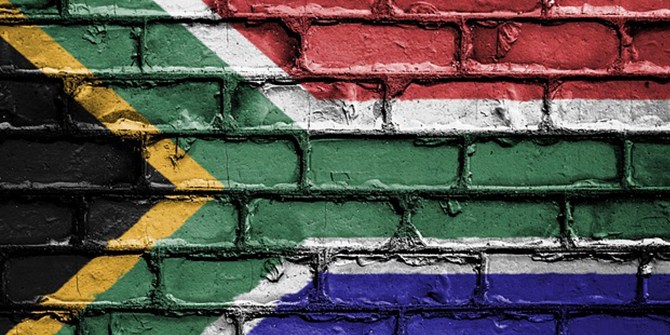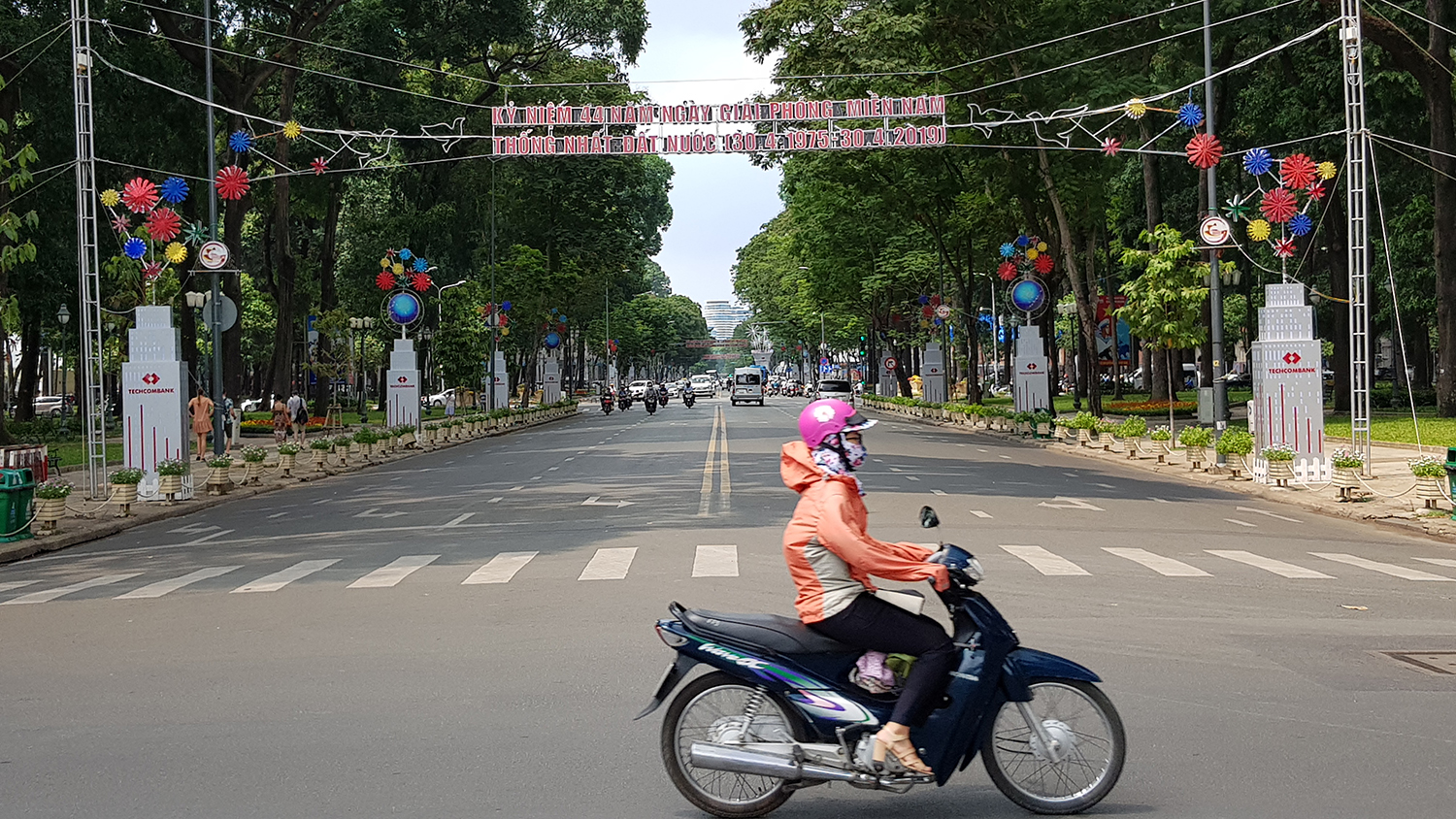News
Ramaphosa's choice for the declining ANC
Ramaphosa's work to restore and revive the enthusiasm of his early days starts now. Failure to do so may not only lead to disenchantment with Ramaphosa and his party, but also create negative consequences on both the nation's economic and political fabric.

Former Researcher, The Brenthurst Foundation

Associate Researcher, The Brenthurst Foundation

Despite South Africa’s re-election of Cyril Ramaphosa, a reduced majority and low voter turn-out signal growing disenfranchisement among the population. Amid dissent in the ruling ANC, Ramaphosa must now make a choice to tackle the country’s economic challenges – should he seek political alliances which risk his party’s collapse?
There is an old Dutch story of a little boy named Hans Brinker who noticed a leak in the sea wall. The wall kept Holland’s low-lying land dry of sea water. As the legend goes, Hans stuck his finger into the wall to block the leak, believing otherwise the water would rush in, the wall break and the land flood.
Bravely, he stood with his finger in the wall overnight, until he was discovered the next morning and hailed as ‘the boy who saved Holland’.
Some see Cyril Ramaphosa’s election victory in May 2019 for the African National Congress (ANC) as saving South Africa, and others that such faith in his power to reform will prove naïve. For the first time in 25 years the party won less than 60% of the vote. The Economist’s cover story on 27 April 2019 (incidentally Freedom Day, celebrated 25 years since the first democratic election) boldly claimed that Cyril Ramaphosa was ‘South Africa’s best bet’. But Ramaphosa is looking increasingly like little Hans Brinker with his finger in the leak, doing little more than stalling the government’s total collapse.
Perhaps more so than any of South Africa’s previous democratic elections, this year’s options for most were especially uninspiring, with voters having to choose between a deeply corrupt and fractured ruling party whose president has been unable to rid the government of known crooks, an official opposition (The Democratic Alliance) which has tried and failed to appeal to both conservative white and liberal black voters with incongruous promises, and a radical left, The Economic Freedom Fighters (EFF), who propose to rock the country’s economic foundations through a programme of nationalisation, deemed by many threatening given its current fragility.
On Election Day, 8 May 2019, with showers forecast for every province, these options were seemingly unable to motivate people to head out in the rain to vote en masse. Voter turnout was about 65% – the lowest percentage turnout recorded since 1994. While low youth voter turnout has received a lot of attention, turnout among those over 35 also saw a decline. This growing disenchantment in politics is a concern.
At the same time, economic conditions have rarely been this desperate. South Africa’s fiscal position has deteriorated steadily towards a cliff edge, the budget moving from a surplus to a R335 billion (US$23.3 billion) deficit in ten years. With GDP growth remaining sluggish, and rising costs in debt-servicing and borrowing, for many the growing deficit is unsustainable with huge risks to economic well-being.
Governance is also faltering. Service delivery protests have multiplied tenfold in the past decade to nearly 250 major protests in 2018 – a sign of popular discontent and declining trust in the formal political system’s abilities.
Despite these protests, service delivery was overshadowed by the issue of job creation, an unemployment rate of nearly 27% spurring every major party to run on this policy platform. These were exemplified by slogans such as ‘JOBS NOW’, ‘More decent jobs’ and ‘A job in every home’. Doubt is cast over these pledges, however, given the existing size of the civil service and rising government wage bill, the increasing pace of which is considered unsustainable. South Africa’s largest public electricity utility ESKOM is believed to be 60% overemployed with few signs of increased hiring.
However, Ramaphosa’s unsurprising victory at the polls (gaining 57.5%) suggests his party are the drag: pre-election polls revealed that Ramaphosa was more popular than the ANC with a 73% approval rating compared to the ANC’s 60%. There remains a popular perception that Ramaphosa is able to right the wrongs of the recent past, but the previous ANC government under discredited former President Jacob Zuma casts a dark shadow over his term.

With his party still deeply fractured, Ramaphosa might juggle political positions to form an alliance, and therefore a stronger political mandate to enact transformative policies, with a potential lurch towards a more radical agenda. Given an unthinkable alliance between the ANC and the Democratic Alliance, given the latter’s high profile anti-corruption agenda, this would entail a move towards the Marxist-oriented EFF. Certainly, this would come at a costly price for Ramaphosa and the ANC. More likely, however, the ANC will muddle along in a scenario where little really changes: a compromise(d) cabinet is appointed, ESKOM’s position deteriorates and investor confidence further wanes – all of which may cost the ANC in 2024. The Zuma-camp within the ANC might try to recall Ramaphosa as the infighting persists, only to be saved by his remaining popularity.
Far from the ‘Ramaphoria’ of the early days of his presidency in early 2018, when South Africans from all corners rallied behind him in the hope of a swift political transformation, the current situation is best described as a gloomy lull. Ramaphosa’s work to restore and revive the enthusiasm of his early days starts now. Failure to do so may not only lead to disenchantment with Ramaphosa and his party, but also create negative consequences on both the nation’s economic and political fabric.
His first test lies in the appointment of his cabinet. The ANC’s pre-election list of candidates showed very little promise with many party members implicated in corruption cases or associated with Zuma and his circle’s ‘state capture’ for personal gain. Weeding out corruption from the ruling party should start with those who have already been indicted by the ongoing State Capture Commission. But he must go further, acting decisively in subsequent tests around job-creation, inequality and economic revival.
As the continent’s second largest economy, and the most industrialised in the region, how South Africa handles its political environment will be closely watched by neighbouring and world economies. The question for these observers remains: what will Ramaphosa want for his legacy? Will he save the ANC from combustion and fractionalisation by simply continuing like nothing has changed, or will he be like Hans Brinker, ‘the man who saved South Africa’, taking action but at the potential cost of his party?
This article was originally published on the LSE Blog.

